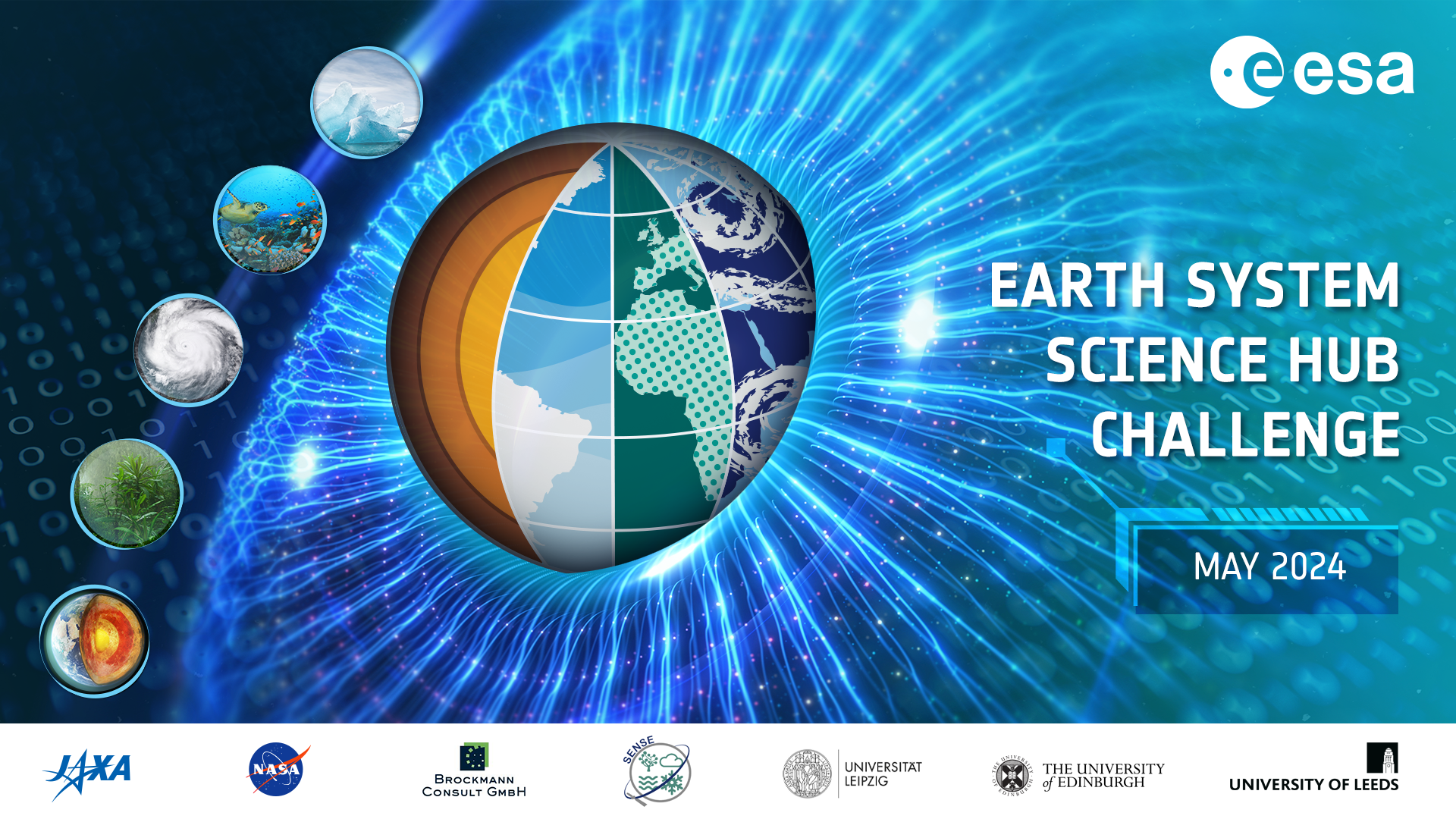
3rd Earth System Science Challenge
- Post by: Science Hub Team
- May 9, 2024
The 3rd edition of the Earth System Science Challenges takes place at the ESRIN Science Hub from 13-17 May 2024.
The ESRIN Science Hub is organising the third edition of the Earth System Science workshop in partnership with the doctoral school of University of Edinburgh and University of Leeds.
Learn more about the event and browse the agenda here: Workshop with University of Edinburgh, UK, 13-17 May 2024
EO Challenges
The main goal of the workshop is to equip PhD students with the skills and knowledge needed to work with Earth Observation (EO) data effectively on the cloud. The workshop proposes a series of data science “challenges” to the students, which need to be solved using EO data. Students must work in teams and choose a use case with societal relevance, to demonstrate the impact that EO has for the societal benefit.
Moreover, the scientific focus of the workshop is understanding Earth system dynamics and processes. Thus, the challenges address typical data science problems encountered in EO data analysis. These include time interpolation, dimension reduction across time, prediction tasks, spatial autocorrelation, unsupervised clustering, CNN classification, and gap filling in spatial dimensions. Students will therefore deal with analysing trends and detecting time-scale dependencies, observing time dynamics in Earth data, characterising compound of extreme events and much more.
Technical support is provided by a team from Brockmann Consult who will guide the participants through key concepts of the DeepESDL. Moreover, scientists from University of Leipzig will work closely with the students, helping them navigate the challenges and performing the interpretation of their results.
Communicating science through storytelling
A unique highlight of this workshop is the hands-on experience. Participants will collaborate in groups to present their scientific insights in the form of stories to be featured on the EO Dashboard – an open platform co-developed by ESA, NASA and JAXA. The dashboard illustrates global changes with Earth Observation datasets from the three agencies, and communicates scientific findings through storytelling.


